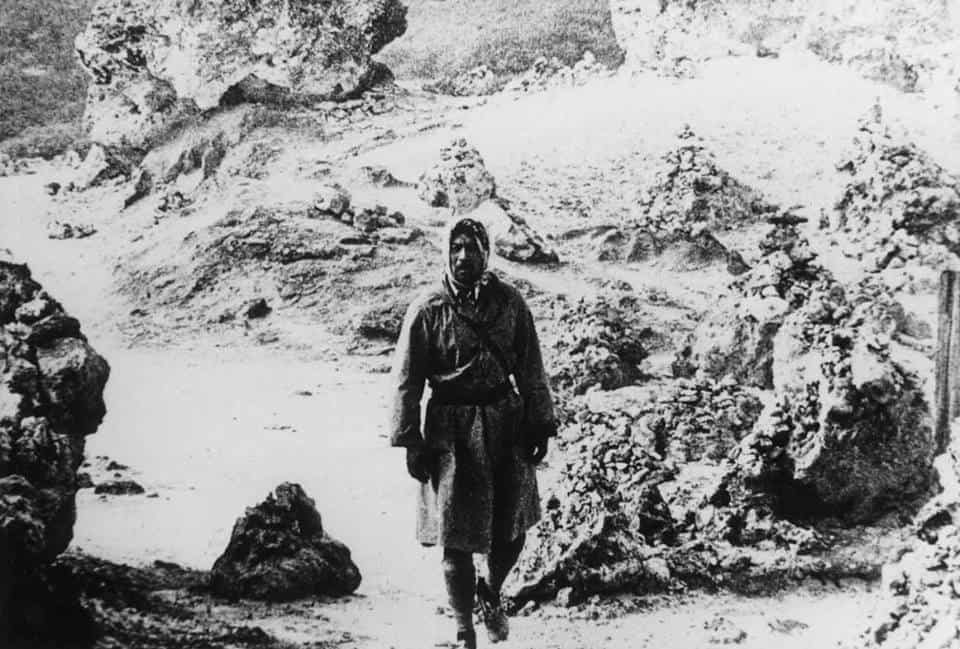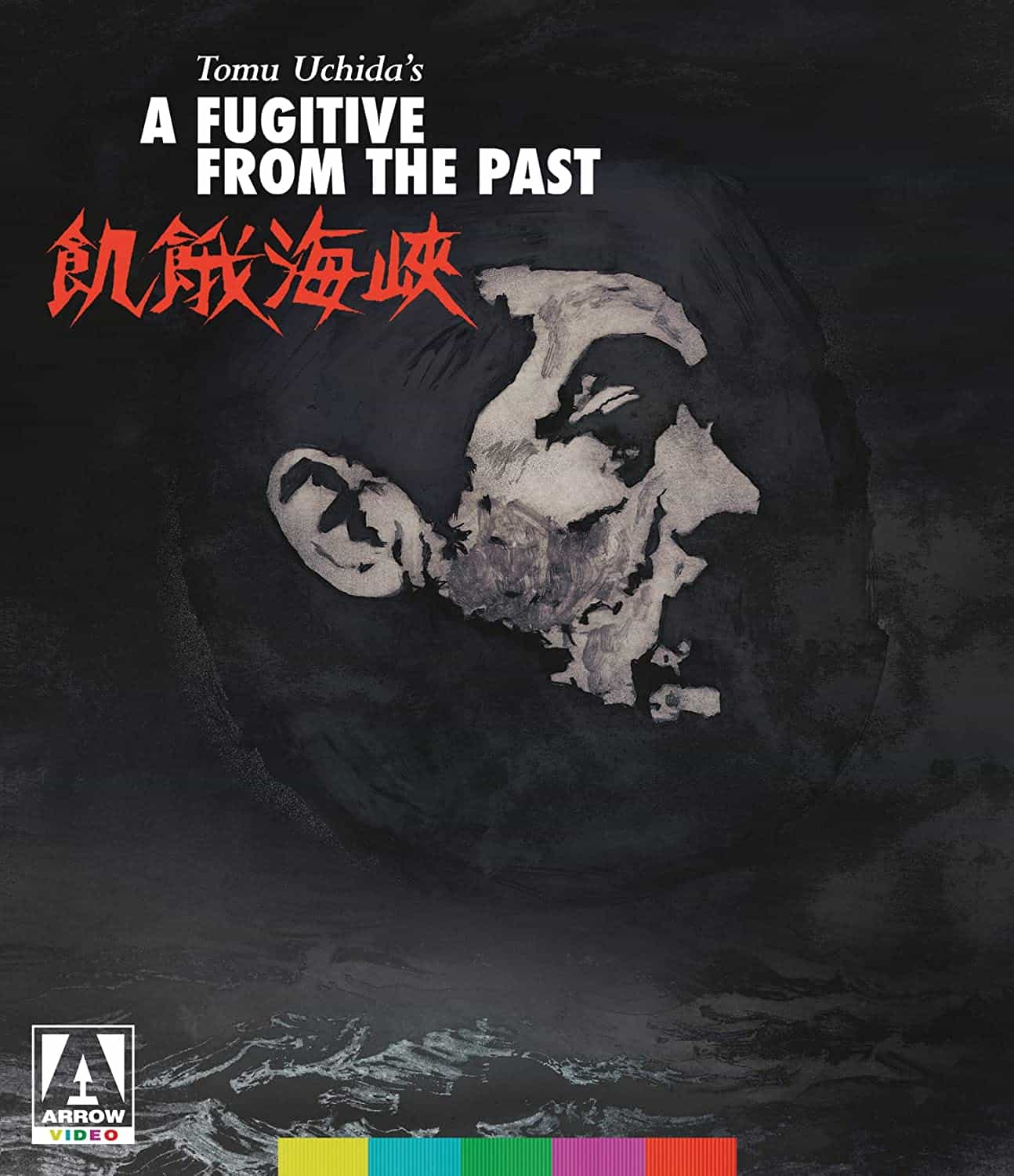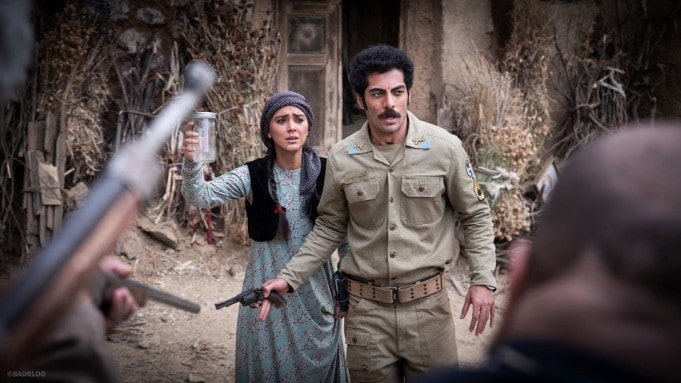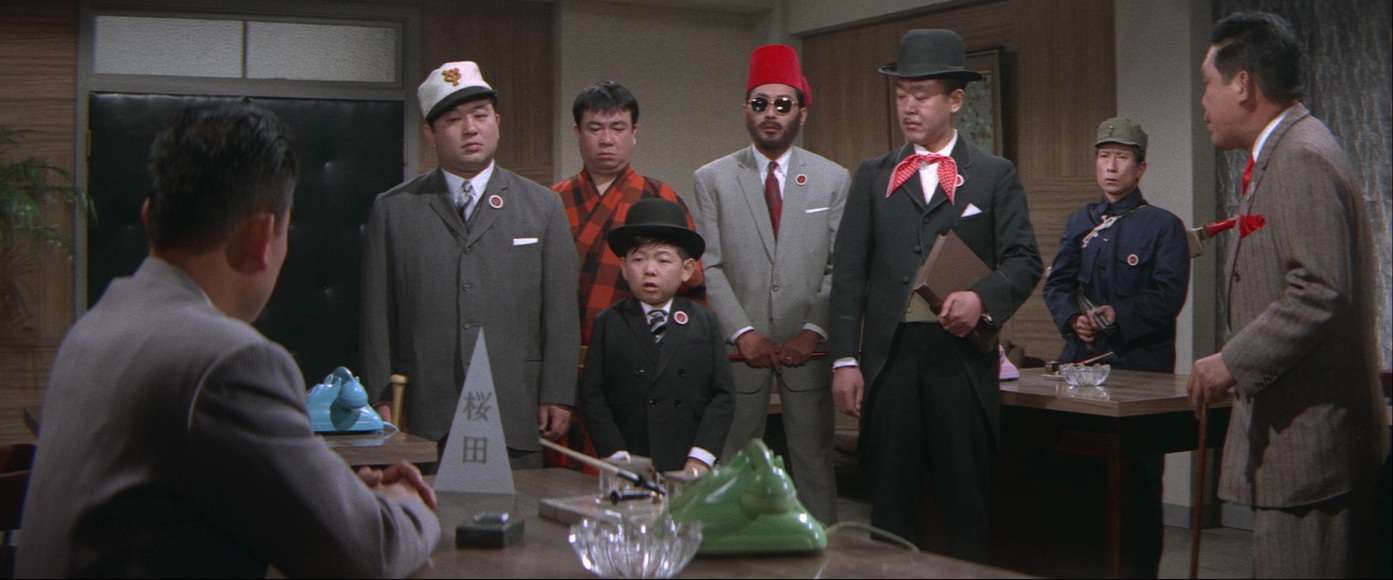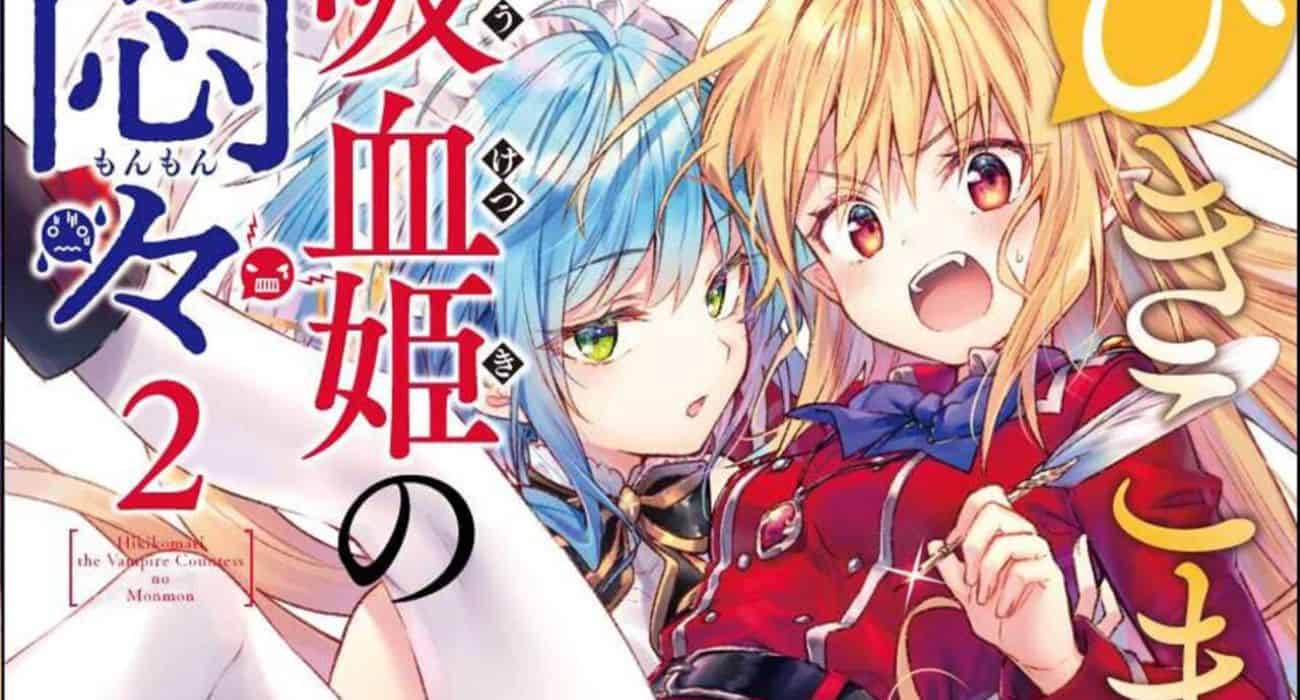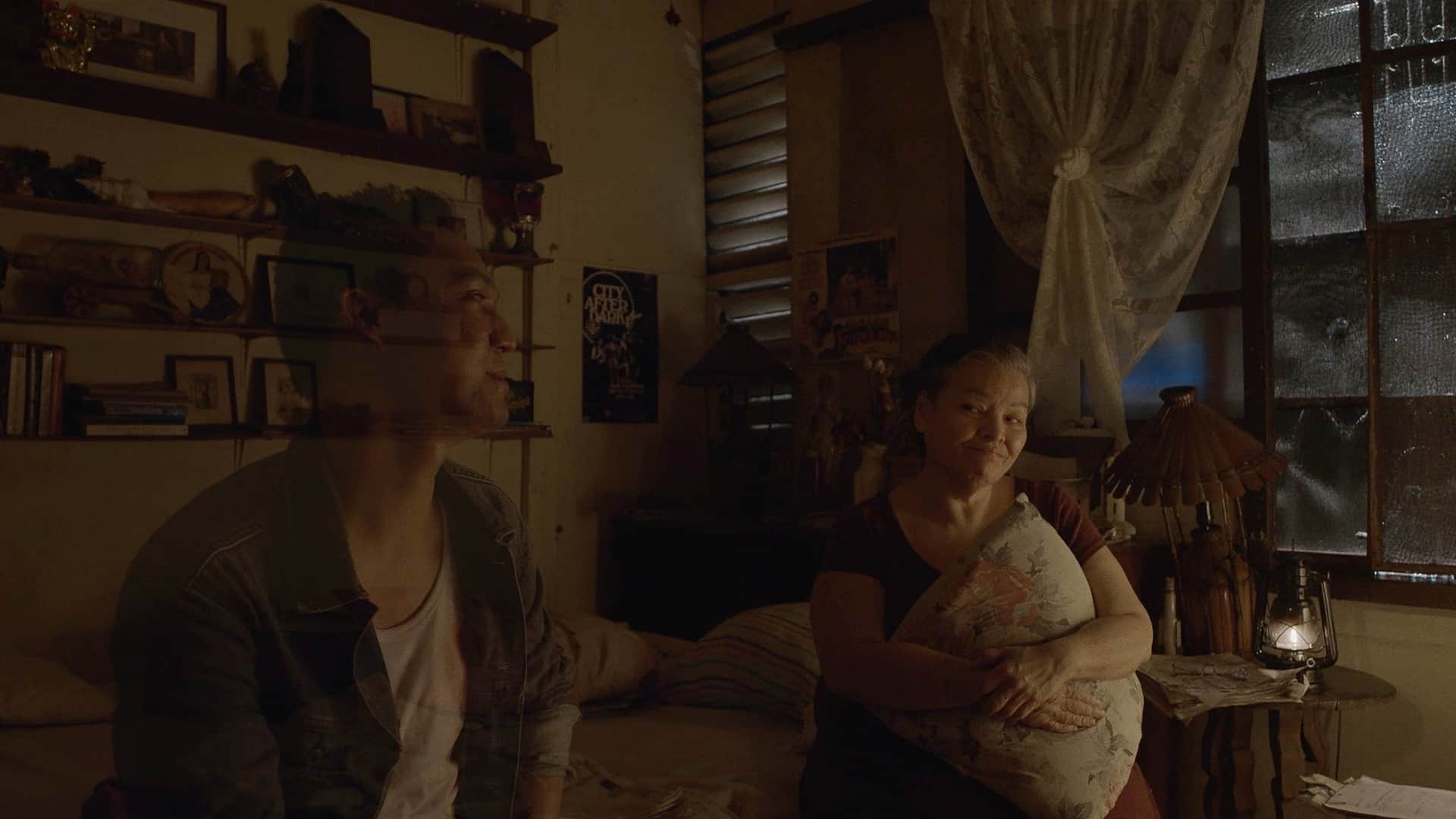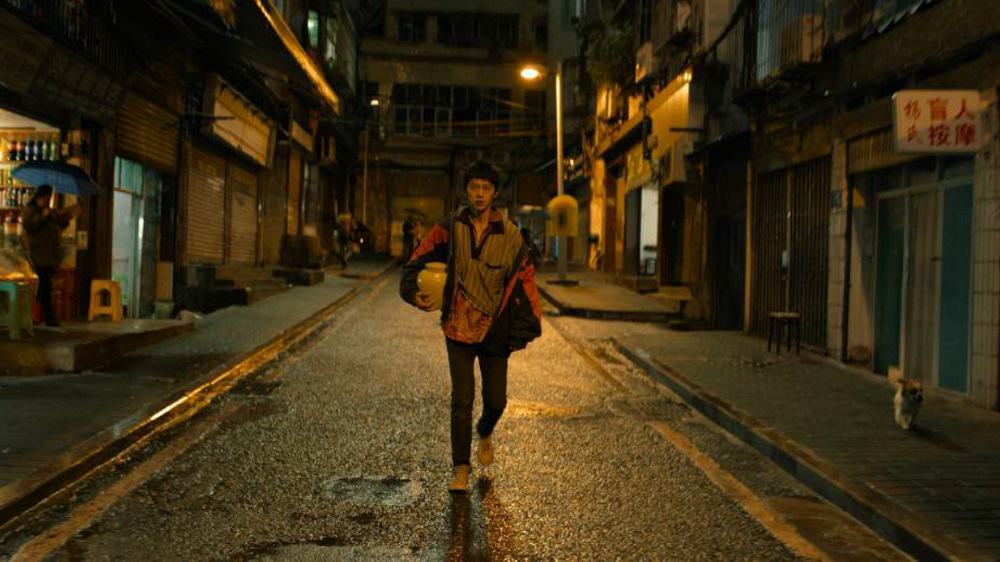Japan during the 1960s saw a surge in crime flicks. Examples include the stylish gangster features by Seijun Suzuki and the darkly comical underworld movies by Kihachi Okamoto. Yet, there were also slower pieced character study crime thrillers that took their time to develop their characters and create overwhelming suspense and atmosphere with powerful themes that made audiences think. Look no further than Akira Kurosawa's terrific films “The Bad Sleep Well” and “High and Low.” Yet, Kurosawa wasn't the only notable director to put out poignant noir tales. Right around this time, filmmaker Tomu Uchida had built quite a name for himself with the numerous jidaigeki pictures he made. Occasionally, Uchida would step away from cinematic depictions of feudal Japan to do something more unique in his filmography, such as his phenomenal crime epic, “A Fugitive from the Past.”
“A Fugitive from the Past,” also known as “Straits of Hunger,” is based on the detective story of the same name by Tsutomu Mizukami. The powerful narrative is an allegorical piece on the hardships of poverty and tragedy that can result from said struggles. The cinematic adaptation is one of the many ambitious projects to come out of Toei Company, Ltd in the 1960s. Talk of an adaptation of the powerful crime story had been a priority for the studio for quite some time. The company's president Shigeru Okada wanted to make it a reality. Unfortunately, the film's production was daunting and frustrating, especially for director Tomu Uchida who clashed with the studio. It didn't help that his hands were already full enough at the time with his “Miyamoto Musashi” film series. Things only worsened when a lot of footage was cut out in the editing room, which forever soured Uchida's connections with Toei, and he would part ways from the studio following the movie's completion. Ironically, “A Fugitive from the Past” would become a critical and box office hit upon release. Many even regard it as Uchida's finest work.
In 1947, Japan is hit by a horrifying typhoon that results in a ton of destruction, including the tragic sinking of a passenger ferry containing hundreds of people. While this is going on, three robbers are on the run and are witnessed fleeing from a burning pawnshop. Following the disaster, the burned remains of a boat and two dead bodies are found. The corpses are two of the three suspected criminals who were seen running from the flaming shop. With the help of Detective Yumisaka, a police investigation begins in search of a primary suspect, a mysterious man named Takichi Inukai. Inukai is on the run through Hokkaido and ends up being sheltered by a prostitute named Yae Sugito, an event that would forever change the lives of these two. Inukai leaves Yae a large amount of money before parting ways with her and vanishing. She uses the funds to pursue a new life in Tokyo and support her family, all while the country is in a state of post-war recovery. The woman hopes to one day reunite with the strange man she encountered and show her gratitude. A decade passes, and the Inukai case goes cold, leaving Yumisaka feeling lost. Then, confusion and sorrow reemerge when two more dead bodies are discovered.
Clocking in at nearly three hours, Tomu Uchida doesn't waste a minute delivering a haunting tale of a killer's desperate struggle to escape his past. The narrative deliberately takes its time, giving the audience compelling characters to follow and a mystery with many shocking twists and turns. This is held together by Naoyuki Suzuki's superb screenplay. It is easy to feel Detective Yumisaka's frustration in trying to solve this bizarre case and see justice be served and obtain closure. Takichi Inukai is a criminal, yet there is much more to him than just that, while also not excusing when he does something horrible. Once his motives come to light, it becomes all the more poignant. The most tragic character in the film is Yae Sugito, who merely resorted to prostitution as a means of financial survival during tough times. Adding to that, she is shown to be a kind person, making her even more likable.
All the players in the film have their own interesting stories playing out, and once their stories cross paths, chaos and suspense ensue. Combined with a great story is thought-provoking commentary on the struggles of poverty and how unfortunate events can lead to crime. “A Fugitive from the Past” gives a devastating look at the socioeconomic state of postwar Japan, showing a lack of order and how desperate some individuals were in their effort to survive. More hauntingly, we see that the hardships of societal crisis push some characters to the point of no return. Also subtle throughout the film, the integration of Buddhism further emphasizes the struggles going on, almost as a desperate cry for mercy in the hard times the people in the story are forced to endure.
It certainly helps that this harrowing mystery is well-acted. Rentaro Mikuni stars as Takichi Inukai and does a great job. He brings many emotions to the role, capturing the madness of a man attempting to assume a new life yet being continuously haunted by his dark past, resulting in future consequences. Also excellent here is Sachiko Hidari as Yae Sugito, bringing sadness to her role as a woman trying to survive in a time of crisis and unknowingly getting roped into a murder investigation. Junzaburo Ban is wonderful as Detective Yumisaka, who is desperate to seek answers in this strange case he is involved in. Also very good is Ken Takakura, who plays Yumisaka's successor, Detective Ajimura, who helps get him involved once more in solving the cold case surrounding Inukai.
Quite noteworthy in the work of Tomu Uchida is the superb editing and visuals, and here it is no exception. Uchida presents a depressingly nightmarish world with exceptional cinematography by Hanjiro Nakazawa. Also great is the ominous mood throughout the film. The atmosphere of “The Fugitive from the Past” is both eerie and devastating. Further enhancing this is a haunting music score by Isao Tomita.
“A Fugitive from the Past” is a masterpiece that deserves more international attention. There is so much to admire beyond the movie's impressive production values. The film succeeds in giving viewers a compelling mystery while also being thematically effective. Its social commentary is powerful while effectively depicting the country during a time of economic and social struggle. A marvelous cast at the top of their game adds to the great storytelling.


